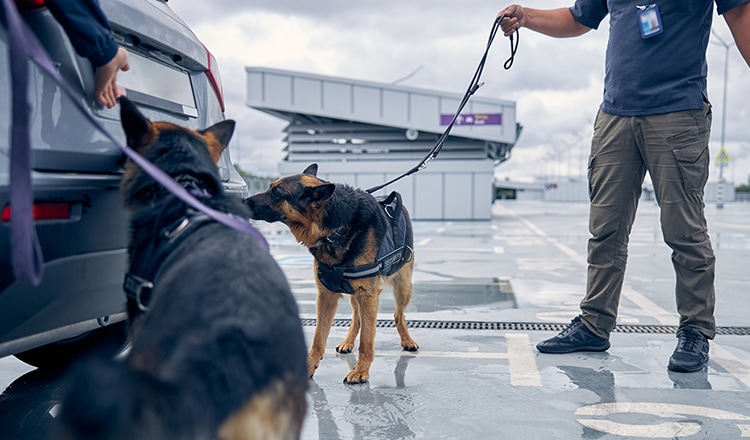Philip Morris International (PMI) has announced the final four projects to have been awarded grants by PMI IMPACT, a global initiative supporting third-party programs combatting illicit trade and its negative consequences for individuals, their families, and communities. These grants will support projects focused on topics ranging from border control to awareness-building activities and fostering cooperation between different stakeholders involved in the fight against illicit trade. Some will also support law-enforcement agencies, including the provision of equipment to counter illicit trade schemes and provide information about the threat that illegal trade poses to society among key audiences. These grantees join seven organizations selected for funding in 2022, for a total of 11 projects supported as part of the third round of grants.
The grant recipients come from Africa, Asia, Europe, and South America. Around USD 5 million has been allocated for the projects, aiming to culminate by 2026.
In total, PMI IMPACT has financed 71 projects, allocating around USD 53 million across 37 countries. These projects tackle a variety of aspects related to illicit trade, including border control, capacity building, research programs, and awareness-raising campaigns, as well as supporting law enforcement anti-illicit trade operations.
Illicit trade is a pernicious threat that impacts us all, especially in times of economic hardship and rising inflation, when consumers may turn to the black market to find more affordable products.
The global threat of contraband and counterfeit goods
Given the lack of appropriate information about―and oversight of―these products, the growing consumption of contraband and counterfeit goods poses a threat to public health worldwide. In this challenging environment affecting consumers, governments, legitimate businesses, and society as a whole, PMI IMPACT arose as a much-needed global program through which organizations could exchange expertise and ideas, and collaborate on solutions to eradicate illicit trade.
“Over the past seven years, PMI IMPACT has enabled an ecosystem of public and private organizations―at both the national and international levels―to come together to address and counter the global scourge that is illicit trade,” said Gregoire Verdeaux, Senior Vice President, External Affairs, PMI*. “The program has been a valuable element in PMI’s unwavering commitment to combat and prevent illicit trade.”
Projects supported by PMI IMPACT since 2016 have been designed to tackle black market trade across geographies—from illicit tobacco products and other FMCGs to the counterfeiting of pharmaceuticals and electronics. Public, private, and nonprofit organizations, including government authorities, international organizations, associations, academic institutions, and private companies, were among those selected for funding. You can find out more about the PMI IMPACT grantees and learn more about PMI IMPACT on our dedicated website.
Acknowledging the contribution of the PMI IMPACT Expert Council
During the three funding rounds, applications were reviewed and selected by the PMI IMPACT Expert Council, made up of external, independent experts in the fields of law, human rights, anti-corruption, security and defense, innovation, and technology. The 71 projects were chosen from hundreds of proposals.
“PMI is thankful for the commitment and contribution of our council members to the PMI IMPACT program,” said Verdeaux. “We are honored to have been able to rely on the knowledge and expertise of this independent council, which played a central role in allocating the grants.
“Over the past several years, PMI IMPACT has embodied our company’s efforts to fight illicit trade, becoming a landmark initiative in our decades-long history of fostering public-private partnerships to combat smugglers and counterfeiters, and protect the most vulnerable in the supply chain—the consumers. PMI will continue its unyielding efforts to work with law-enforcement agencies, regulators, and policymakers worldwide to enact impactful changes.”
Why illicit trade undermines the goal of a smoke-free future
For PMI, eliminating illicit trade in all its forms remains a top priority, as such trade undermines efforts to deliver a smoke-free future—a future without cigarettes.
Globally, the company collaborates with law-enforcement agencies and other organizations to root out and shut down illegal activities, including counterfeiting and smuggling.
PMI’s efforts to fight illicit trade are embedded in its day-to-day operations. The company implements preventive and protective measures as a means of supply chain control, uses cutting-edge track-and-trace technology, and holds all customers and suppliers to strict due-diligence standards and protocols.
However, even with these efforts, illicit trade remains a threat to society and smokers in particular, and continues to adapt to societal shifts. Effective policymaking, fiscal calendars, deterrent penalties, and impactful enforcement are needed to decisively crack down on illicit trade.
At the same time, governments should adopt differentiated policies on alternatives to cigarettes—and embrace innovative approaches to help effectively deter millions from continuing to smoke. If these actions are taken, PMI will be able to more rapidly deliver on its commitment to a smoke-free future, and we could get closer to a world without cigarettes, which is in everyone’s best interests.
*Gregoire Verdeaux left PMI in April 2024.



